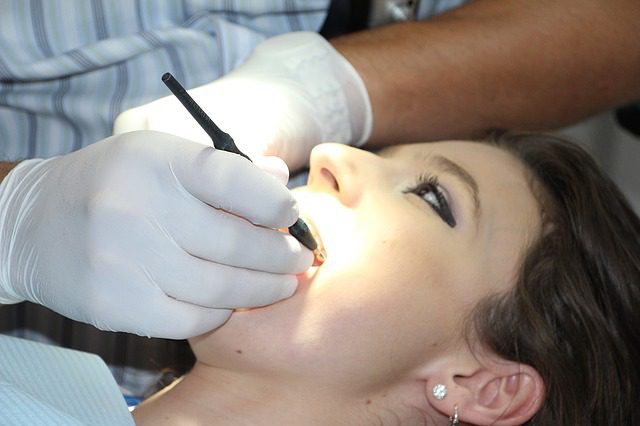Wisdom teeth can be a problem. By your late teens to early 20s, most of your other permanent teeth are well established and positioned in your mouth. There just isn’t a lot of room left over for wisdom teeth by the time they develop. Scientists suspect that wisdom teeth are an evolutionary link to a meaty diet. Whatever the reason, they tend to cause problems.
Sometimes wisdom teeth can become impacted in bone or gum tissue and cannot grow into a normal tooth position. Often the teeth will crowd out surrounding teeth, leading to pain and other issues with your teeth.
If you’re experiencing any of these problems, you should consult a surgeon who specializes in wisdom teeth removal for a more detailed diagnosis.
Sensitivity & Pain in the Back of Your Mouth
Do you notice any pain, sensitivity, or throbbing when you brush or eat? You might feel the pain when you’re doing nothing at all. This could be caused by emerging wisdom teeth. You should schedule an appointment with a dentist or oral surgeon to have your wisdom teeth checked.
Jaw Stiffness
Emerging wisdom teeth can put continual pressure on your jaw. This pressure is caused by the incoming teeth pushing against the surrounding teeth. You might experience difficulty opening or moving your mouth or jaw. It can feel quite uncomfortable, even excruciating if left untreated. If you feel pressure, discomfort and stiffness in your jaw, you might be a candidate for wisdom teeth removal.
Gum Inflammation
Sometimes wisdom teeth can create a flap of gum tissue behind your molars, which can trap particles of food and bacteria. This can irritate and inflame your gums, causing them to become swollen. You might notice reddish areas around the gumline that sting when touched. Brushing can be difficult. This is a condition known as pericoronitis — one of the most common reasons patients seek care for wisdom teeth.
If you suffer from pericoronitis, you should have your wisdom teeth removed soon. As surgeons, we like to remove wisdom teeth before they get to this point. That’s why we recommend early evaluations so the wisdom teeth can be extracted before the gum line becomes infected.
Bad Breath or Taste
As wisdom teeth emerge, especially if they are impacted or malformed, the surrounding area can be difficult to clean. Food can become trapped, leading to bacteria growth that can result in infection. Wound-infecting bacteria releases sulfur compounds can create awful breath or a constant unpleasant taste in your mouth. It won’t get you any dates and could be a solid sign you’re ready to have your wisdom teeth removed.
Cysts Develop in Your Mouth
Ignore problems with your wisdom teeth long enough, and cysts can develop in your mouth. Cysts are sacs of fluid that can end up impacting and damaging the roots of neighboring teeth. If left untreated, cysts can destroy bone, roots and surrounding structures. Cysts can potentially develop into various tumors requiring additional oral surgery.
Sinus Issues
Sinus issues can be caused by a number of dental issues, including wisdom teeth. When teeth grow in the upper jaw, developing roots can deform the bony sinus floor. This can lead to sinus pain, pressure, headaches and congestion. Are you experiencing congestion, pressure or pain with your sinuses? This could be a sign your wisdom teeth need to be removed.
Jaw Pain
As wisdom teeth grow and develop, they can grow into a malformed position in your mouth, interfering with the way your teeth normally bite together. This can cause muscle stiffness and pain in the jaw. You may have trouble opening and moving your jaw. If left untreated, this can lead to a misaligned bite and often leads to significant TMJ issues.
Extensive Tooth Decay
Wisdom teeth that don’t come in properly can pressure surrounding teeth and damage nearby molars. Your jaw can become crowded, leading to problems with tooth decay. Any previous dental work you’ve had done can be damaged.
Impacted Wisdom Teeth
Wisdom teeth that come in crooked are known as impacted wisdom teeth. This can cause pain, tenderness, swelling, and damage to other teeth. The wisdom teeth may even grow into your jawbone and become very difficult to remove later in life. That’s why as surgeons, we always recommend removing wisdom teeth as soon as possible.
Is It Time to Remove Your Wisdom Teeth?
We recommend not waiting too long. This can only lead to problems down the road and make your wisdom teeth more difficult to remove. Like we said, the sooner, the better. Talk to your dentist about when you should have your wisdom teeth removed — or schedule an appointment with a surgeon that specializes in wisdom teeth removal.









